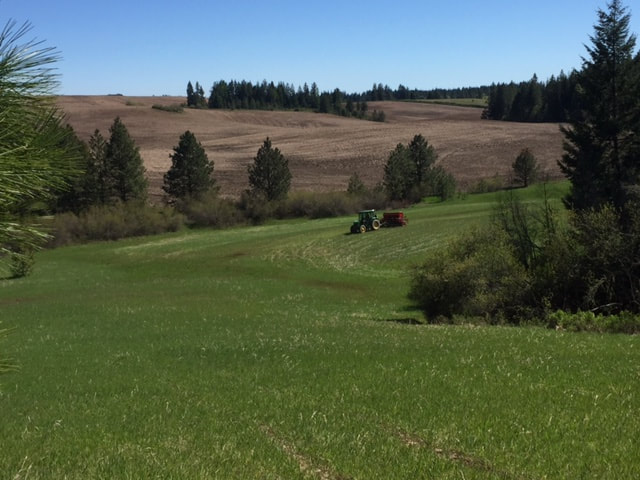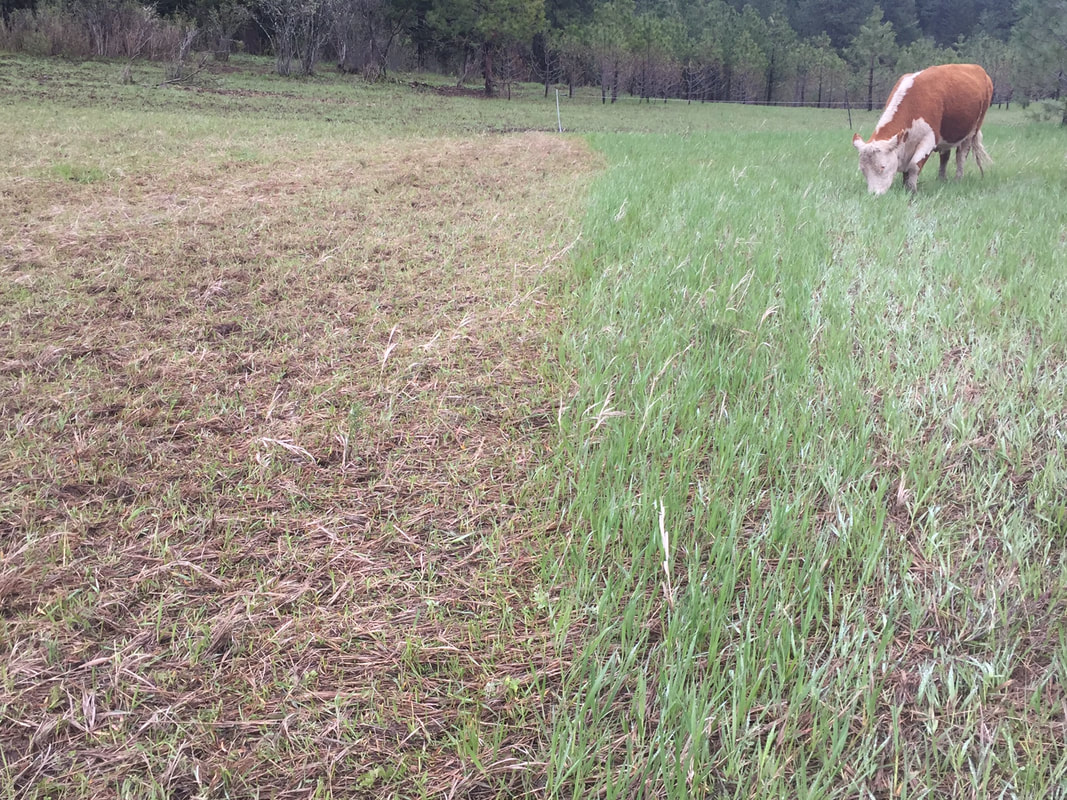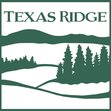About Us
Not from Texas...
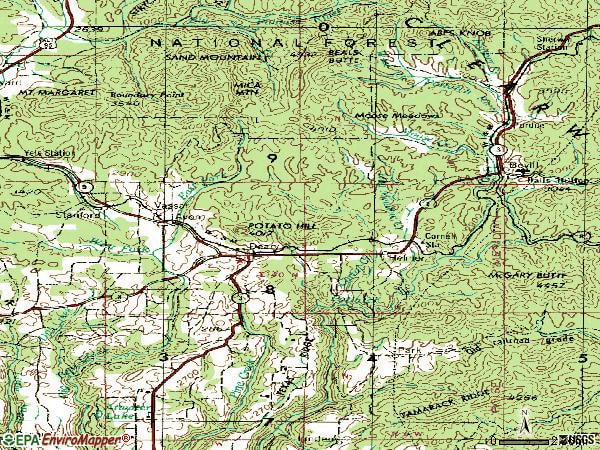
Our family began successfully raising and finishing superior grass-fed beef and dairy goats in the high plains desert of Colorado in 2009. We began employing non-selective grazing principles to leased land in Colorado, and saw degraded land transformed into lush grazing land over a couple of seasons.
In 2016, we moved our operation to the lush, verdant hills of Deary, Idaho, settling on the Texas Ridge, and proudly adopted its name for our ranch. We were confident we would see the same remarkable regeneration in soil fertility we experienced through grazing in Colorado, but things happen slower here in Idaho! People said it couldn't be done, but each season, we're proving the nay-sayers wrong. However, the unique climate and soil conditions in north Idaho have proven challenging, and we've had to experiment with adding new methods and tools to our land management. Slowly, we are making progress in restoring this degraded land to a healthy fertile ecosystem.
In 2016, we moved our operation to the lush, verdant hills of Deary, Idaho, settling on the Texas Ridge, and proudly adopted its name for our ranch. We were confident we would see the same remarkable regeneration in soil fertility we experienced through grazing in Colorado, but things happen slower here in Idaho! People said it couldn't be done, but each season, we're proving the nay-sayers wrong. However, the unique climate and soil conditions in north Idaho have proven challenging, and we've had to experiment with adding new methods and tools to our land management. Slowly, we are making progress in restoring this degraded land to a healthy fertile ecosystem.
Everything good grows here.
"Everything Good Grows Here" is not just our slogan, it's a statement in faith that this land, if stewarded properly, will support all the good things in life.
Leaving a legacy
While most of our customers know us for our animals, they are only a part of our operation. Our primary focus is and always will be leaving land, a legacy and a livelihood to future generations. The modern name for this stewardship mindset is "Regenerative Agriculture." Although the definition of regenerative agriculture continues to evolve, the principles it employs are age old. We know that by mirroring nature's systems, and by always giving back more than we take, the land will be abundant and plentiful for generations to come. Much of what we do looks strange to most people acquainted with farming, but that's because we're constantly experimenting with new and different ways to more closely match our processes with the way things occur in nature.
A prescription for health
The 79 acres we manage had been stripped of much of the fertility the Palouse region is famous for through conventional farming, but we knew that by employing regenerative agriculture models, including no-till cover crops, managed intensive rotational grazing, and permaculture principles, we would be able to heal the soil biology to restore this land to the fertile ground it once was. Each passing season we observe huge improvements in the land and soil, and the process has been a humbling testament to the remarkable resilience of nature's system.
We have expanded our influence over time and have grown to now manage hundreds of acres in our area using regenerative principles.
We have expanded our influence over time and have grown to now manage hundreds of acres in our area using regenerative principles.
Birth to harvest guarantee
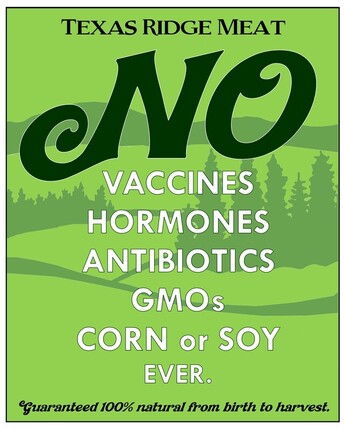
Now more than ever, consumers need to know what's in their food. Many beef and pork sellers purchase their animals from either a livestock sale auction or from another breeder. When buying meat from these sellers, there's no way for buyers to be totally certain this meat is free of vaccines, hormones, antibiotics or other chemicals.
The only way to truly know what's in your meat is to purchase from a producer who raises the animals from birth to dinner plate.
That's why Texas Ridge offers our 100% Natural Guarantee. The meat we sell comes from animals we raise, so we can be 100% confident that the meat you are buying is all natural, managed for health, and FREE of vaccines, hormones, antibiotics.
Look around the site to learn more about our pastured pork, grass-fed & finished beef and our management philosophies.
The only way to truly know what's in your meat is to purchase from a producer who raises the animals from birth to dinner plate.
That's why Texas Ridge offers our 100% Natural Guarantee. The meat we sell comes from animals we raise, so we can be 100% confident that the meat you are buying is all natural, managed for health, and FREE of vaccines, hormones, antibiotics.
Look around the site to learn more about our pastured pork, grass-fed & finished beef and our management philosophies.
Our Philosophies
- Manage for what you want, not for what you don't want
- Diversity is essential to the success of every healthy biological system on the planet: soil, plant, animal. "Competition" is a myth.
- There's no such thing as a "weed"
- The highest management priority on the farm is improving the health of our soil
- No till. Tilling is a tool, and should be used only when no other tool will suffice
- Keep the ground covered and a living root in the ground at all times.
- No area is a "sacrifice area." We call them "Intensive Fertility Management Areas" (IFMAs) and, when properly managed can dramatically accelerate biological activity, and lead to dynamic soil improvement and enhanced fertility
- Regenerative Agriculture: Land managed by humans should always improve. “Sustainable” models are insufficient, as they only promise NOT to leave the land in worse condition than what they started with
- The Rule of Thirds: one third for us, one third for the wildlife, one third for the soil
- Don't export nutrients off the farm if you don't have to
- Poop rolls down hill. Placing intensive fertility management areas (IFMAs) on hilltops allows us to transport nutrients where they are most depleted, and nature takes care of the rest.
Our philosophies in action
Covering the ground
|
In nature, bare, uncovered soil is evidence of trauma to a landscape. In modern agricultural practices we see the impacts of tilling in soil erosion, water pollution, top-soil degradation and agro-chemical dependency. On our farm, we strive to keep a living root in the soil at all times, and the only tilling we employ is done by the pigs. We apply seed to our forests manually using a broadcast seeder, and we seed the pastures mechanically with a no-till drill seeder up to twice a year, planting a variety of species that improve nitrogen fixation, break up compaction, build organic matter, and maximize nutrient uptake. When the resulting plants are highest in sugars and nutrients, we rotate livestock through to harvest the solar energy produced, keeping the plants vegetative longer to maximize their benefit to the soil.
|
Grazing the land
Essential to the recovery of our land is the wonderful livestock we raise and sell to food-educated consumers throughout the region. Hoofs, mouths and manure from a diversity of animal species are nature's way of building, managing and protecting healthy ecosystems. When managed optimally, large grazers like cattle, browsers like goats, omnivores like pigs and poultry each play their part in building soil fertility, maintaining vegetative forage and supporting healthy ecosystem biology.
|
We contain and control all livestock activity on our farm with polywire electric fences which allow us to constantly keep animals moving. This inhibits the selective grazing impacts seen in set-stock grazing systems, and helps to distribute animal impact evenly over the land. We seed and rest each area behind the animals as they move to the next paddock. In weedy areas, or areas where forage is too thin, we bale graze the livestock to concentrate animal impacts and application of manure. Residual hay will cover the ground as a mulch or we will rotate another species in to spread the manure and dry matter more evenly before seeding.
|
Managing for what we want
We are often asked what we do about pest and weed management. A wise man and fellow regenerative agriculturist we know once said, "I manage for what I want, not for what I don't want. I don't want weeds, so I don't manage for them." We've embraced this philosophy wholeheartedly, and have had wonderful success. We believe weed and pest problems are indicators of a system that's out of balance. It's our job to identify the source of the imbalance and support the system to restore health. When balance is restored, the weeds and pests will not be a problem.
Products
|
Animals
|
|
